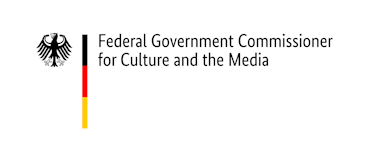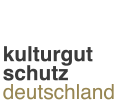Due diligence requirements applicable to the placement on the market of cultural property
According to Section 40 of the German Act on the Protection of Cultural Property (Kulturgutschutzgesetz, KGSG), the placement on the market of cultural property that has been lost, unlawfully excavated or unlawfully imported is prohibited. With a view to facilitating the identification of cultural property of this kind, the due diligence requirements prescribed by law must be met before its transfer, and in particular before its sale.
By imposing statutory due diligence requirements, the Act on the Protection of Cultural Property guarantees a uniform minimum standard that strengthens the position of serious dealers and ensures that buyers are protected against the risk of acquiring cultural property of questionable origin or of needing to restore the cultural property to its country of origin following the initiation of return proceedings. At the same time, the Act acknowledges that not all sellers need to exercise the same level of due diligence, and that the same benchmarks cannot be applied to all objects. The due diligence requirements are therefore tiered as follows:
General due diligence requirements (Section 41 KGSG)
These requirements apply to anyone who places cultural property on the market in Germany within the meaning of Section 2 (1) (9) KGSG. The checks that a “reasonable person would carry out under similar circumstances” must be completed to determine whether the cultural property:
- has been lost (e.g. following a theft);
- has been unlawfully imported into Germany (see Section 32 KGSG); or
- has been unlawfully excavated.
Pursuant to Section 41 (2) KGSG, the checks must be carried out:
“[…] if a reasonable person might assume that one of the offences referred to in subsection 1 has been committed.”
An assumption of this kind must be based on objective circumstances that call the origin of the cultural object into question. For example, they might include an unusually low price or a request for transactions worth EUR 5,000 or more to be settled in cash. If it is not obvious for the party in question that one of the circumstances referred to in 1 to 3 above might be present, however, and if there is no reason for him or her to realize that this is the case as a result of the circumstances under which the cultural property is acquired, the checks do not need to be carried out. According to Section 41 (2) KGSG, the checks must be carried out with reasonable effort.
Due diligence requirements relating to placement on the market for commercial reasons (Section 42 KGSG)
Higher standards of due diligence apply to the placement of cultural property on the market for commercial reasons, since the individuals involved are professionals. The statutory due diligence requirements imposed by the Act on the Protection of Cultural Property are based on the many voluntary commitments adopted by associations representing art dealers, and therefore merely enshrine in law the industry’s own self-imposed benchmarks (further details can be found in the section on Codes of ethics.
In addition to the general due diligence requirements pursuant to Section 41 KGSG, Section 42 KGSG states that commercial dealers are obliged to:
- establish the name and address of the seller, deliverer, acquirer or ordering party;
- provide a description and an illustration that can be used to establish the identity of the cultural property;
- examine the provenance of the cultural property;
- examine documents proving its lawful import and export;
- examine bans and restrictions regarding import, export and trade;
- examine whether the cultural property is registered in publicly accessible registers and databases; and
- obtain a written or electronically transmitted declaration by the deliverer or seller stating that he or she is authorized to dispose of the cultural property.
Once again, the necessary depth of the checks referred to in 1 to 7 above is determined on the basis of reasonable (economic) cost. As per usual for due diligence requirements, the circumstances of the individual case must also be taken into consideration.
Cultural property that does not exceed a value of EUR 2,500 and does not constitute archaeological cultural property is exempt from these additional due diligence requirements that apply in connection with placement on the market for commercial reasons. Special provisions may apply to archaeological coins if they constitute mass-produced objects (see the comments on Section 42 (3) KGSG in the Guidance on the Act on the Protection of Cultural Property (available in German), from page 211 onwards).
Pursuant to Section 84 (1) KGSG, anyone who intentionally fails to comply with the requirements referred to in 1, 2 and 7 will be deemed to have committed an administrative offence punishable by a fine of up to EUR 30,000.
With a view to providing evidence of compliance with the due diligence requirements that apply in connection with placement on the market for commercial reasons, the checks must be recorded, and the records must be retained for a period of 30 years (Section 45 KGSG). This is similar to the corresponding provisions in Switzerland and Austria, which means that a uniform 30-year retention period applies in German-speaking countries for art dealers’ records. Repeated violations of the duties to keep and retain records and provide information to the Land authorities with jurisdiction for matters relating to the protection of cultural property may have consequences under fair trading legislation (Section 47 KGSG).
Reduced due diligence requirements in connection with placement on the market for commercial reasons (Section 43 KGSG)
Reduced due diligence requirements (only 1 and 2 of the above list) apply in connection with the placement on the market of cultural property for commercial reasons if the cultural property in question is placed on the market either by the originator himself or herself or on his or her behalf, or by an individual who had previously acquired it directly from the originator.
Increased due diligence requirements in connection with placement on the market for commercial reasons (Section 44 KGSG)
Under certain circumstances, it is deemed reasonable to expend greater efforts on investigations into the origin of cultural property. This applies in the following cases:
- if it is suspected that the cultural property was removed by the National Socialists;
- 2. if the cultural property originates from a country for which the International Council of Museums (ICOM) has published a Red List of Cultural Objects at Risk; or
- 3. if the cultural property originates from a country in respect of which the EU has imposed a regulatory ban on imports, exports or dealing (this currently applies to Regulation (EC) No 1210/2003 as regards cultural property from Iraq and Regulation (EU) No 1332/2013 as regards cultural property from Syria).
In the case of cultural property that falls under this category owing to aggravating circumstances (cultural property removed by the National Socialists) or owing to the high level of risk (ICOM Red Lists or special rules for Iraq and Syria), greater efforts must be expended on investigations into the origin of the cultural property before it can be offered for sale on a commercial basis. The Act explicitly states that the level of effort deemed reasonable should not be based solely on economic proportionality, since otherwise it would be all but impossible to achieve the goal of focusing particular attention on objects with the aforesaid special characteristics, particularly in the case of objects in comparatively low price brackets. This takes account of the unique circumstances surrounding cultural property removed by the National Socialists and the special risks associated with states of war or crisis.
If no further information can be obtained despite considerable effort, the due diligence requirements will be deemed to have been met.
Detailed information regarding the individual provisions of the Act on the Protection of Cultural Property concerning due diligence requirements and duties to keep and retain records and provide information in connection with the placement on the market of cultural property in Germany can also be found in the Guidance on the Act on the Protection of Cultural Property (available in German), from page 203 onwards.

